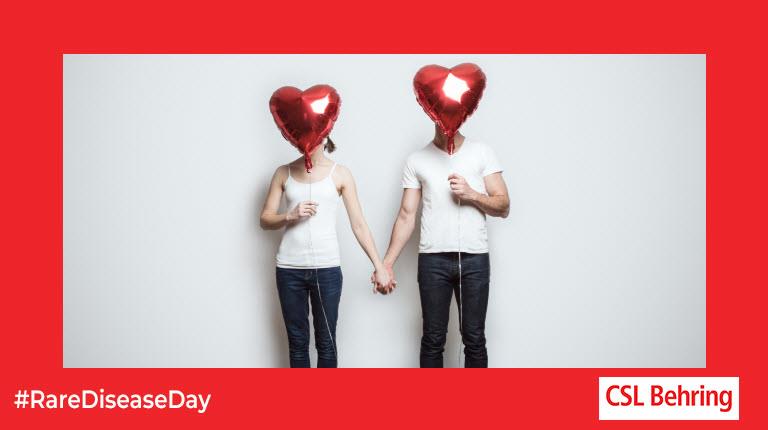Every day in February, we’re sharing content about rare diseases in anticipation of Rare Disease Day on the last day of the month. This question came up at CSL Behring’s patient summit and we thought it made sense to answer as Valentine’s Day approaches.
When you’re dating someone new, it’s common to share some personal details about yourself, but maybe not too much. For people who live with rare and serious diseases, the question is if and when to share their medical status with people they’re dating.
Tahirah Austin, diagnosed with Sickle Cell Disease at age 6, didn’t waste any time.
“During my courtship with my husband, that was one of the first questions I asked him,” Austin said during a World of Promise Podcast. “I was very bold and blunt about it…so, what runs in your family?”
Austin didn’t want her children to have Sickle Cell Disease, a serious, painful condition. Her husband didn’t have the disease or carry the trait and they now have a daughter.
Shantelle Winslow, who has von Willebrand disease, took it more slowly. She didn’t immediately disclose to Samantha McDaniel that she had a bleeding disorder, Winslow said in an interview with Hemaware.org. Instead, she waited a month until they got to know one another better and she didn’t infuse around her at first. The pair married in May.
No avoiding the impact on a relationship
Whether it’s disclosed right away or later on, illness will impact a romantic relationship, said Carrie Mead, a counselor and life coach.
“When someone is living with a chronic illness, dating can be very difficult. Energy levels, mood and personal comfort can often shift quickly and this can make dating or keeping dates almost impossible at times,” she said.

Short, sweet and once a week
Subscribe to our newsletterBeing sick can make it hard to put your best foot forward, which people naturally want to do when a relationship is new.
“During typical dating cycles, when partners are getting to know each other, they are deciding if there is enough compatibility, interest, and trust to keep the relationship moving forward,” Mead said. “During this initial phase, it can be difficult to build this trust, rapport, and attachment if the person with a chronic illness has a flare-up that prevents them from authentically and fully presenting with their new partner.”
So, when should you disclose? Mead suggests waiting until you’re sure you want to move forward in the relationship. Some attractions fade faster than Valentine’s Day roses.
“You may wish to decide if the relationship is worth pursuing before disclosing because you cannot protect your own privacy once you have shared this information,” she said.
Wait, but not too long
“Many people living with chronic illness would prefer to know, upfront, if their partner is willing to stand by their side and support them when they need it,” Mead said.
Without a doubt, managing a rare or serious disease presents a challenge both to the patient and their significant other. But Mead says there’s also a sweet flip-side.
“People who live with illness are often wonderful supporters of their partner as they have developed a great deal of compassion and insight from their own difficult journey," she said.



